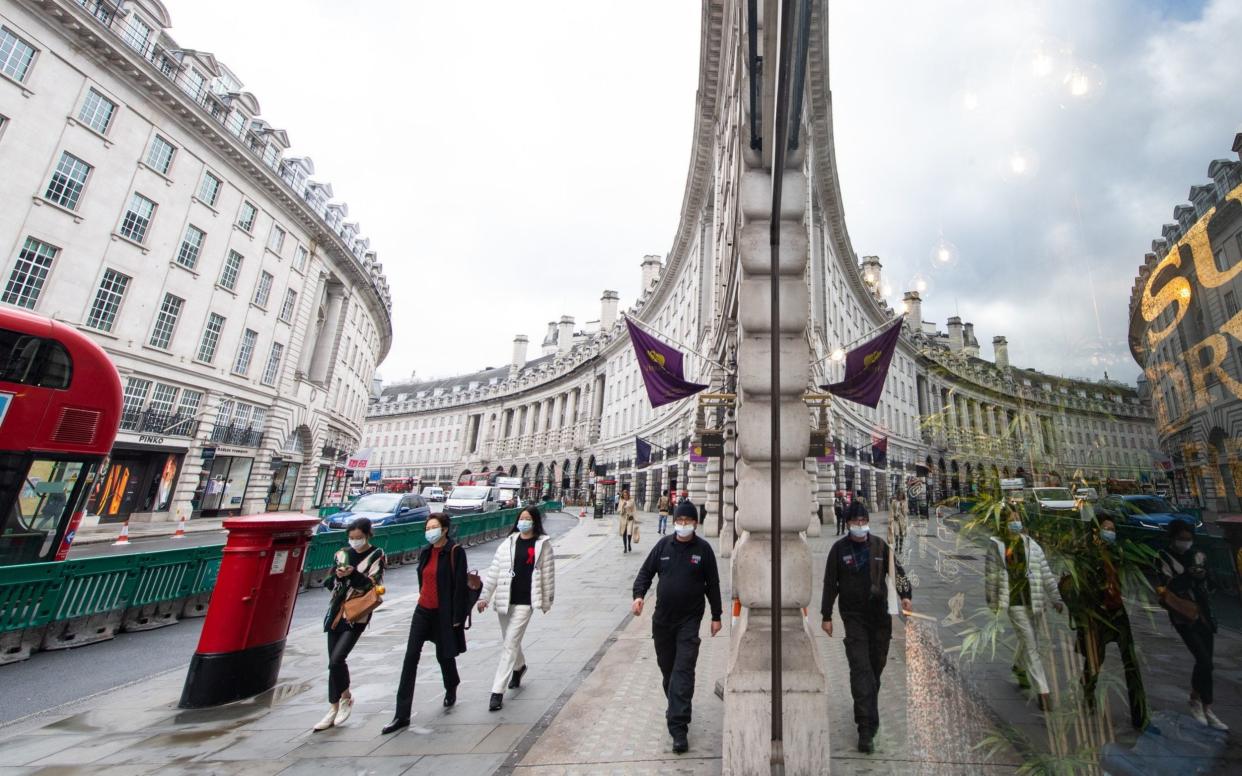Quiet change to Duty Free 'a catastrophe for West End'

Late on the afternoon of Sept 11, as Boris Johnson prepared his latest attack on the EU, the Treasury quietly snuck out an announcement on their website.
With the Prime Minister preparing his response to a threat from Brussels to impose a food “blockade” in the Irish Sea, Rishi Sunak, the Chancellor, with very little fanfare, revealed a major shake-up of duty-free rules.
Duty on cigarettes and alcohol, currently charged on passengers heading to the EU, would be abolished.
The news got better, the Treasury added. “The amount that passengers can bring back with them from non-EU countries will also be significantly increased, and extended to EU countries, providing one of the most generous allowances anywhere in the world.”
But there was a sting in the tail.
Tax-free sales on other items – electronics, such as headphones, or clothes – would be brought to an end.
In addition, “VAT refunds for overseas visitors in British shops will be removed”, the Treasury said.
While the first bit of bad news has enraged airports, the second is to have major implications for the UK’s retailers. Ewan Venters, the chief executive of West End department store Fortnum & Mason, was “completely taken aback” by the Treasury decision.
“When this story first broke I was under the misapprehension that this was somehow related to Brexit,” he says.

London has proved hugely popular with the wealthy elite from fast-growing nations in the Middle East or China.
Many shops in the West End have gone to great lengths catering for overseas visitors, such as employing Mandarin speakers.
A key reason for their popularity is the ability for tourists to claim back the VAT on luxury clobber at the airport on their return home. The Treasury’s announcement means that from January next year, this will be abolished.
The Centre for Economics and Business Research has crunched the numbers: Britain could lose out on £6bn in annual spending as a result, putting up to 138,000 jobs at risk.
Venters says: “I think that somebody in the Treasury thought if we close this ‘loophole’ we will be able to claw back a significant sum of money.
“The truth is that many of the said customers we are referring to, are coming from America, the Middle East, and China. And part of the reason they come to the UK is to enjoy the benefit of buying luxury items that are tax-free.”
While a considerable headache for Fortnum & Mason “it is a huge issue for brands like Harrods and Selfridges”, he adds. Because there is a minimum threshold, this only benefits shoppers planning more expensive purchases.
Anne Pitcher, the Selfridges boss, has said that the UK’s exit from the EU “should have been a golden opportunity to make Britain one of the most desirable countries to visit”. Instead the Treasury has created “a catastrophe”.

The Heart of London Business Alliance represents 500 businesses and 100 landlords across Piccadilly, St James’s and Leicester Square. Ros Morgan, the chief executive, says: “The savings that the Treasury predicts are illusionary. They won’t collect the £500m in VAT that they claim because those sales will no longer take place in the UK.
“Rather, tourists will visit other European cities such as Milan and Paris.
“This will directly impact the shops, bars, hotels, restaurants and cultural institutions in the West End.”
It will have consequences in the regions too, Venters adds. “Our biscuits are made in Lancashire, our chocolate is made in Brighton, our tea is blended in Newcastle, our shortbread is blended in Edinburgh.”
“People see it as a London issue, but it is not just a London issue. If I sell less tea and less chocolate, then folks that we employ in Newcastle and Brighton; jobs and livelihoods will be at risk.”

This week MPs on Parliament’s treasury committee will quiz Whitehall officials on the rationale for culling the major shopping perk.
The Treasury says that, despite their surprise, retailers were given fair warning of the decision.
“Changes to the VAT retail export scheme were subject to full consultation, and will ensure our systems are in line with international norms. VAT-free shopping is still available because retailers are able to offer it to overseas visitors who purchase items in store and have them sent directly to their overseas addresses,” a spokesman says.
“Our support for business has reached – and continues to reach – millions of firms across the UK. This includes an extension to loan schemes, deferred VAT payments previously due in March, business rate holidays, protections against evictions, and an extended 15pc VAT cut for the tourism and hospitality industries.”
This, however, is scant reward for the West End, according to Morgan. “Financial support from the Government for struggling businesses cannot substitute for the economic benefits that come with London being a global destination where tourists enjoy spending their money.”
The solution, she says, is very simple. “We ask the Government to reverse its decision.”

